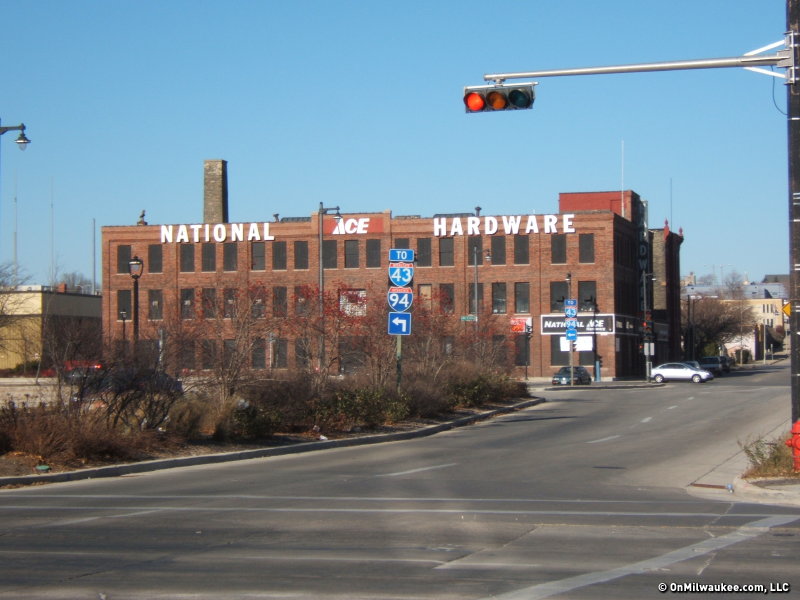The store -- which has managed to survive and prosper despite the local growth of national retailers -- opened in 1950 and has been a mainstay on the northern edge of Downtown ever since. Its 20-ft. "hardware" sign has become as much of a part of the city for longtime residents as the flame atop the Wisconsin Gas Building.
Owner Dave Rotter's father, Marshall, opened the store -- one of five the family would own -- and he took over after dabbling in the legal field for a few years. Rotter's portfolio currently includes two other National locations, one at 1310 W. Burnham Ave. and another at 3555 S. Howell Ave.
National's clientele is a mix of Downtown "empty-nesters," construction workers -- a demographic that is growing along with the Downtown building boom -- and Downtown workers who stop off on their way home from the office. The eclectic mix of one of the reasons Rotter enjoys his job.
"Business at our Downtown store is so diverse," Rotter says. "Early mornings, we get a lot of contractors. Many people who live in the neighborhood come in during the day. It's a riot because you'll never know who's going to come into the store. A lot of Downtown workers come in on their lunch breaks or on their way home from work. It's just a really diverse group."
National Hardware, like many locally-owned retailers, faces increasing pressure from the growth of big-box chains invading the area and taking a bigger piece of the market share. Rotter says it's a challenge for his company, but he finds ways to compete in ways other than pricing.
"Other places, the focus is on stocking the shelves and knowing where things are," Rotter says. "There's nothing wrong with that. But I think we cater to a larger group of people who really want help with the hardware. They may save a couple cents at a big-box store, but the advice you get can end up costing you much more than the cost of the item.
"The No. 1 thing I talk about with and try to emphasize to my employees is to have a willingness and desire to help people. I want people that enjoy solving problems with a customer's leaky faucet or peeling paint. We're problem-solvers."
Lowe's -- the nation's largest chain -- recently moved into the area while both Home Depot and Wisconsin-based Menards have a strong hold on the market. Aside from National, Robertson's Hardware in Wauwatosa and Brady Street Hardware are among the bigger independent shops in the area.
The competition is nothing new. In the 1970s, hardware stores dealt with Sears, which was the go-to store for just about everything.
"They were a monster," Rotter says. "They had the biggest tool department, the biggest lawn and garden department and their own credit card. How could you compete? The fact is there's always going to be somebody bigger and better. You just have to find ways to work around it."
To compete, Rotter's stores joined Ace Hardware in 1990. Ace isn't a nationwide chain; it's more of a cooperative that allows independent stores to collaborate on purchasing -- keeping costs down -- and to help with advertising. The nearly 5,000 affiliated stores do roughly $16 billion in annual sales.
"We had five stores up until the late 1970s and the big boxes really started to have an impact," Rotter says. "But with Ace, the ability to advertise has been a huge benefit. It's run by dealers. We research, compare notes and are able to work with each other and help each other out."
Rotter knows that the national retailers will continue to expand but he's confident that the service and products offered by his store will continue to be desired by Downtown contractors and the local do-it-yourself community.
"Any project that gets done around here, the contractors usually come in and set up an account," Rotter says. "We don't go after bidding, but we take care of the fill-in stuff. When the Bradley Center was built, we got beat out on the paint contract. We ended up making more money just providing service for the group that got the bid.
"We make sure that if we don't have what somebody needs that we find a way to get it."



